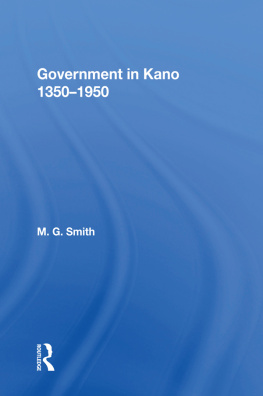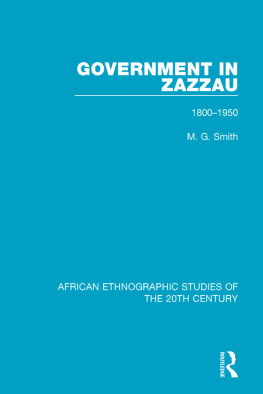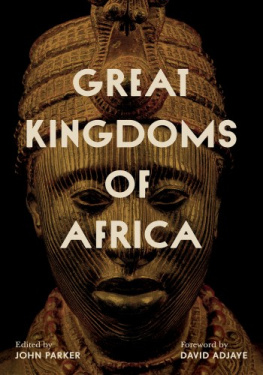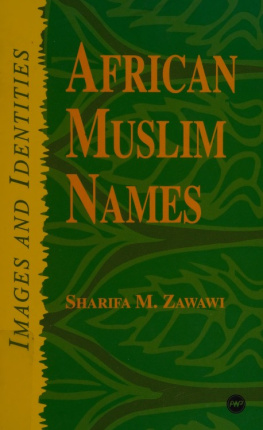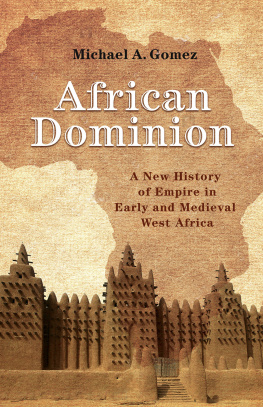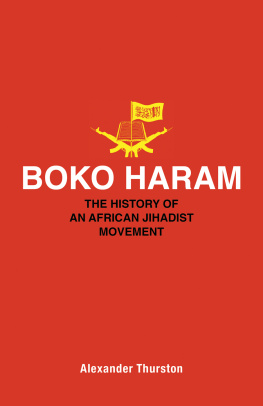Government in Kano 13501950
AFRICAN STATES AND SOCIETIES IN HISTORY
Series Editors
Philip Curtin, Paul E. Lovejoy, and Shula Marks
First published in 1997 by Westview Press
Published in 2021 by Routledge
605 Third Avenue, New York, NY 10017
2 Park Square, Milton Park, Abingdon, Oxon OX14 4RN
Routledge is an imprint of the Taylor & Francis Group, an informa business
Copyright 1997 by Taylor & Francis
All rights reserved. No part of this book may be reprinted or reproduced or utilised in any form or by any electronic, mechanical, or other means, now known or hereafter invented, including photocopying and recording, or in any information storage or retrieval system, without permission in writing from the publishers.
Notice:
Product or corporate names may be trademarks or registered trademarks, and are used only for identification and explanation without intent to infringe.
A CIP catalog record for this book is available from the Library of Congress. ISBN 0-8133-3270-2
ISBN 13: 978-0-3670-0978-6 (hbk)
ISBN 13: 978-0-3671-5965-8 (pbk)
DOI: 10.4324/9780429039645
Contents
2 Kano under Alwali (17811807)
The Society
The Hausa Government
The Governors
Notes
3 The Development of Kano State
Introduction
The Gaudawa (Daurawa)
The Rumfawa
The Kutumbawa
Notes
4 Conquest and Consolidation
The Jihad in Kano
The Interregnum
Suleimanu, 1807/8?-1819
Ibrahim Dabo, 18191846
Usuman, 18461855
Notes
5 Two Sons of Dabo
Abdullahi, 18551882
Mamman Bello, 18821893
Notes
6 Civil War and Sultanism
Tukur, 189394
Aliyu Babba, 18941903
Notes
7 Defeat and Recovery: Abbas, 19031919
Notes
8 Toward the Future
Usuman, 19191926
Abdullahi Bayero, 19261953
Notes
9 Analysis
Introduction
Concepts and Theory
Method
Analysis
Notes
- 2 Kano under Alwali (17811807)
- The Society
- The Hausa Government
- The Governors
- Notes
- 3 The Development of Kano State
- Introduction
- The Gaudawa (Daurawa)
- The Rumfawa
- The Kutumbawa
- Notes
- 4 Conquest and Consolidation
- The Jihad in Kano
- The Interregnum
- Suleimanu, 1807/8?-1819
- Ibrahim Dabo, 18191846
- Usuman, 18461855
- Notes
- 5 Two Sons of Dabo
- Abdullahi, 18551882
- Mamman Bello, 18821893
- Notes
- 6 Civil War and Sultanism
- Tukur, 189394
- Aliyu Babba, 18941903
- Notes
- 7 Defeat and Recovery: Abbas, 19031919
- Notes
- 8 Toward the Future
- Usuman, 19191926
- Abdullahi Bayero, 19261953
- Notes
- 9 Analysis
- Introduction
- Concepts and Theory
- Method
- Analysis
- Notes
Guide
2.1 Some Eighteenth Century Office Staffs (lawanai)
2.2 Babba Zakis Communication Structure, c. 1770
2.3 Territorial Organization Under Alwali, c. 1800
2.4 Status Structure of Alwalis Officialdom, c. 1800
5.1 Fulani Communication Structure, c. 18801893
5.2 Territorial Organization Under Mamman Bello (c. 1890) and Aliyu (c. 1900)
7.1 Kano Finances, 19031912
8.1 Some Changes in the Distributions of Office Among Prominent Fulani Lineages in Nineteenth and Twentieth Century Kano
8.2 Kano Native Treasury Accounts, 194950
9.1 43 Moments of Change at Kano, 13491953
9.2 Moments of Change Classified by Source and General Implication
9.3 43 Numbered Events Classified by Their Sources and Analytic Implications for the Chiefship, Government and State
Government in Kano is the third in a set of five studies on the processes of political change in northern Nigeria. The first two, Government in Zazzau (Oxford University Press, 1960) and The Affairs of Daura (University of California Press, 1978), are both currently out of print. The remaining two studies, on Katsina and on Sokoto, though written as long ago as 1968, are still unpublished (the typescripts are available for consultation at University College London). A short, sixth book was planned, to close the series and draw out the conclusions. In 1992, at the enthusiastic urging of the historian Professor Paul Lovejoy, M.G. Smith finalised the text of Government in Kano for publication by Westview Press. On Christmas day that year, however, he was taken ill, and died on January 5th 1993, aged 71. That this text did not return to the archive is due to the editorial persistence of Mary Smith and the generosity of Professor Don Brown.
It is a matter of great regret (and some surprise) that Government in Kano, perhaps the most important of these five histories, has taken so long to appear in print. The existence of the histories has been no secret; for years historians of Hausaland have been waiting eagerly to read them. There is a certain irony here: professionally researched before African History became a leading discipline in the new universities in Africa, the text is at last offered to readers only after the popularity of the pre-colonial period among researchers has sharply declined. The forty years, between 1958 and 1998, have witnessed the giddy rise of History in Africa; in Nigeria alone, it is now taught in some forty university departments. In those years the city of Kano, with over five centuries of source material, has been the focus of doctoral and masters dissertations in a range of disciplines. Yet M.G. Smiths account of the transformations in the government of Kano constitutes, forty years on, still a very important contribution to the analysis of Kano society: there has never been anything quite like it in Kano studies, offering as it does both empirical rigour and a theoretical overview. And it is unlikely to be superseded.
The significance of this study lies partly in the fact that it contains important material from oral sources that no other scholar has ever had access tothe eighty-year-old elders with whom M.G. Smith worked have long been dead; and partly too because Kano is the key emirate in northern Nigeriait was the economic engine of the region for both the nineteenth and the twentieth centuries. Demographically the most densely populated with its rich farmlands, industrially the most productive with its range of skilled craftsmen, the best financed and the most widely connected with its networks of merchants, bankers and transporters, the Kano hinterland was the entrepot, to which inevitably the railway came in 1912 and where the international airport was sited. Metropolitan Kano today has over two million inhabitants. Its traditions of government, particularly as they have adapted to changing conditions and ideologies over the last two centuries, are an important resource within the broader political culture of Nigeria.
But there is a third reason for this studys significance: it offers the reader a dissident view of jihad and colonial historyreflecting not some alien theoretical perspective but rather the rarely expressed hurt of the exploited and the oppressed. The voices that come through are often those of the loser, of the deceived. M.G. Smith was not as impressed as have been other scholars, particularly historians, by the elite practitioners of either Islam or benevolent colonialism.

